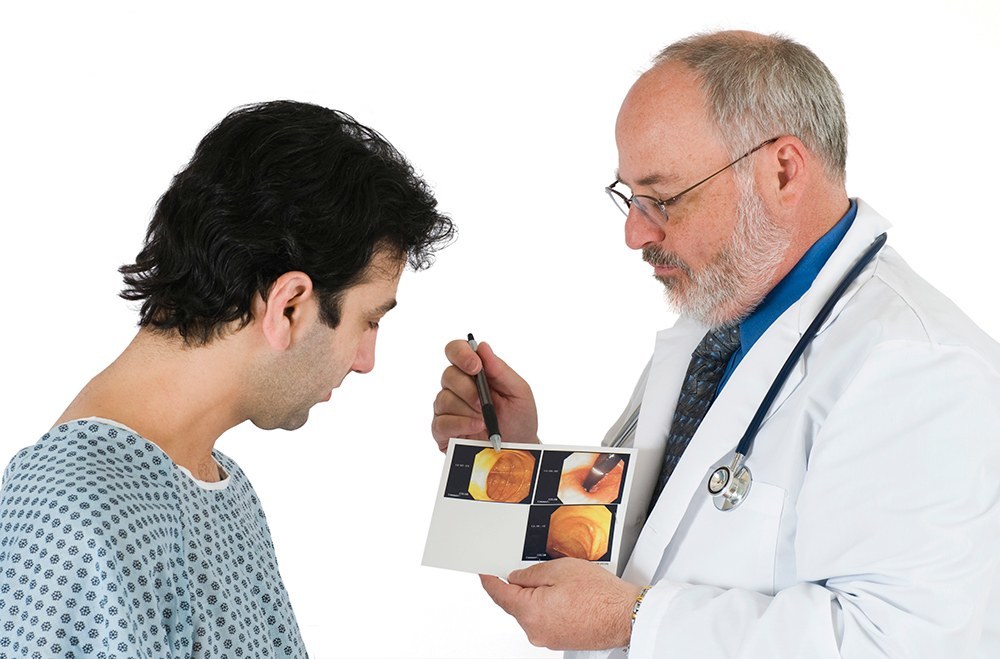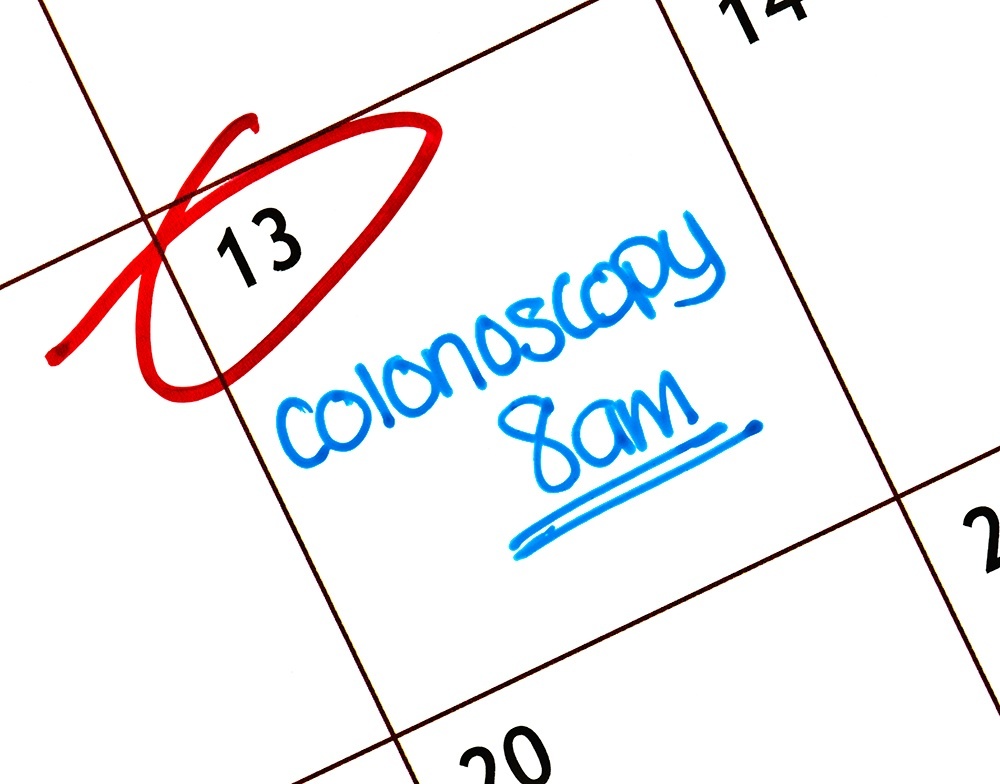It’s very important to understand that just because you’ve presented with possible bowel cancer symptoms, doesn’t mean you have it. At this stage that’s all they are – symptoms that need further investigation to determine their cause.
After visiting your Doctor regarding any potential bowel cancer symptoms, chances are you will be referred to your local hospital, or a local Endoscopy clinic for a closer look. Remember, bowel cancer prevention has a lot of convincing evidence to help you minimise contributing factors, and it’s never too late to get started!
Even where bowel cancer symptoms are not present, asking your GP about screening, tests and Doctor Referrals is a great way to be prepared and informed.
After referral, your initial appointment will involve a specialist discussing your symptoms with you; questions asked will be similar to those asked by your GP. You may then be required to undergo blood tests and/or a colonoscopy. Or your GP may refer you directly for a colonoscopy.
So, what is a colonoscopy?
This procedure involves inserting a colonoscope through the anus and rectum, into the colon. This thin tube-like instrument is equipped with a light and video camera for viewing. It has attachments to remove polyps and take tissue samples for testing.
Colonoscopy is usually complete in about 30 minutes, and you receive sedation to ensure you’re comfortable, relaxed and pain-free. In some cases the sedation means you’re not aware of the procedure at all. Where sedation is used, you should always arrange for alternative transport and be sure to have someone with you in the hours that follow.
Every case varies, so you may receive your results right after the procedure, or you might be required to make another appointment. Depending on the diagnoses, the specialist will go over the best treatment plan. Waiting times do vary, so contact your nearest clinic for further information and to make an appointment.
Also take advantage of the National Bowel Cancer Screening Program, which is currently in place for screening all Australian citizens aged 50, 55 and 65 without symptoms with FOBT (faecal occult blood test). Ask Direct Endoscopy staff for more detail.
Genetic factors and causes in Bowel Cancer

Family history of bowel cancer is an important risk factor for colon cancer, however there also a number of specific genetic conditions that have a particularly very high chance of developing bowel cancer.
These are FAP (familial adenomatous polyposis) and Lynch syndrome (also known as hereditary non polyposis colorectal cancer or HNPCC). These gene changes increase the risk of getting bowel cancer for people who have them, but they are very rare. Together, FAP and Lynch syndrome are only responsible for around 1 in 20 cases of bowel cancer (5%).
FAP (familial adenomatous polyposis) is a rare disease that runs in families. It is responsible for about 1 out of every 100 bowel cancers (1%). FAP causes lots of small non cancerous growths (benign polyps) to develop in the large bowel. Some of these will develop into cancer over a period of time.
Because people with FAP have so many polyps, they have a high risk of getting bowel cancer. By their 40s, it is almost certain they will have bowel cancer. Specialists recommend that people with FAP have surgery by age 25 to remove all of their colon and prevent them getting bowel cancer.
Another rare gene fault that runs in some families is Lynch syndrome (HNPCC). The healthy form of this gene helps DNA to repair itself. If you have the faulty gene for HNPCC, you are at a greater risk of several different cancers. Bowel cancer risk is increased most with this condition. But there is also an increased risk of womb cancer, ovarian cancer, stomach cancer, pancreatic cancer, bile duct cancer, and bladder cancer.
Benefits of Bowel Cancer screening

If you have bowel cancer diagnosed at the earliest stage, there is a very good chance that the cancer can be cured. The statistics show that more than 9 out of 10 people (90%) survive their cancer for 5 years or more. When it is found at a late stage, the chances of survival are much lower.
Colonic polyps and Bowel Cancer Prevention
Polyps are benign tumour (adenomas) that grow within the bowel. These growths are not cancerous, but given time they will grow and develop into bowel cancer. If you have a family history of bowel cancer of polyps, you have a higher chance of developing these potentially cancerous tumours. Unfortunately these polyps (adenomas) are quite common and around a third of the population will have at least one polyp by the time they are 60.
Finding these polyps with colonoscopy and removing in time will prevent developing bowel cancer.
Clinical trials in bowel cancer Prevention

Currently colonoscopy and early detection of polyps offers the best way of reducing the chances of developing bowel cancer.
However there are now also a number of clinical trials looking at other ways to improve bowel cancer screening:
- SEAFOOD Trial. This trial is looking to see if a type of fish oil (EPA), on its own or in combination with aspirin, can stop polyps growing back after being removed.
- CORGI Trial. This study is trying to find genes that may increase your risk of bowel cancer or non cancerous tumours called polyps and adenomas. We know from research that certain genetic factors you inherit from your parents may affect your risk of getting tumours in your bowel. This includes polyps and adenomas as well as bowel cancer.
- CONSCOP Trial. This trial looks at two different ways of doing colonoscopy to screen for bowel cancer and improve polyp detection rates. This trial is looking at a new way of doing a colonoscopy that involves spraying a blue dye throughout your large bowel. This is called a contrast enhanced colonoscopy.
It is likely that with time and more research we will develop better and more effective ways of screening for bowel cancer as well as more effective treatments for prevention.
More Information:
- Bowel Cancer: click here
- Bowel Cancer Causes: click here
- Bowel Cancer Symptoms: click here
- Bowel Cancer Testing: click here
- When to get a colonoscopy, why you need one and how it all works - November 22, 2021
- Why Your Doctor Wants You to Get a Colonoscopy - October 12, 2021
- Why Australia’s Bowel Cancer Screening Age Should Be Lowered to 40 - July 23, 2021

